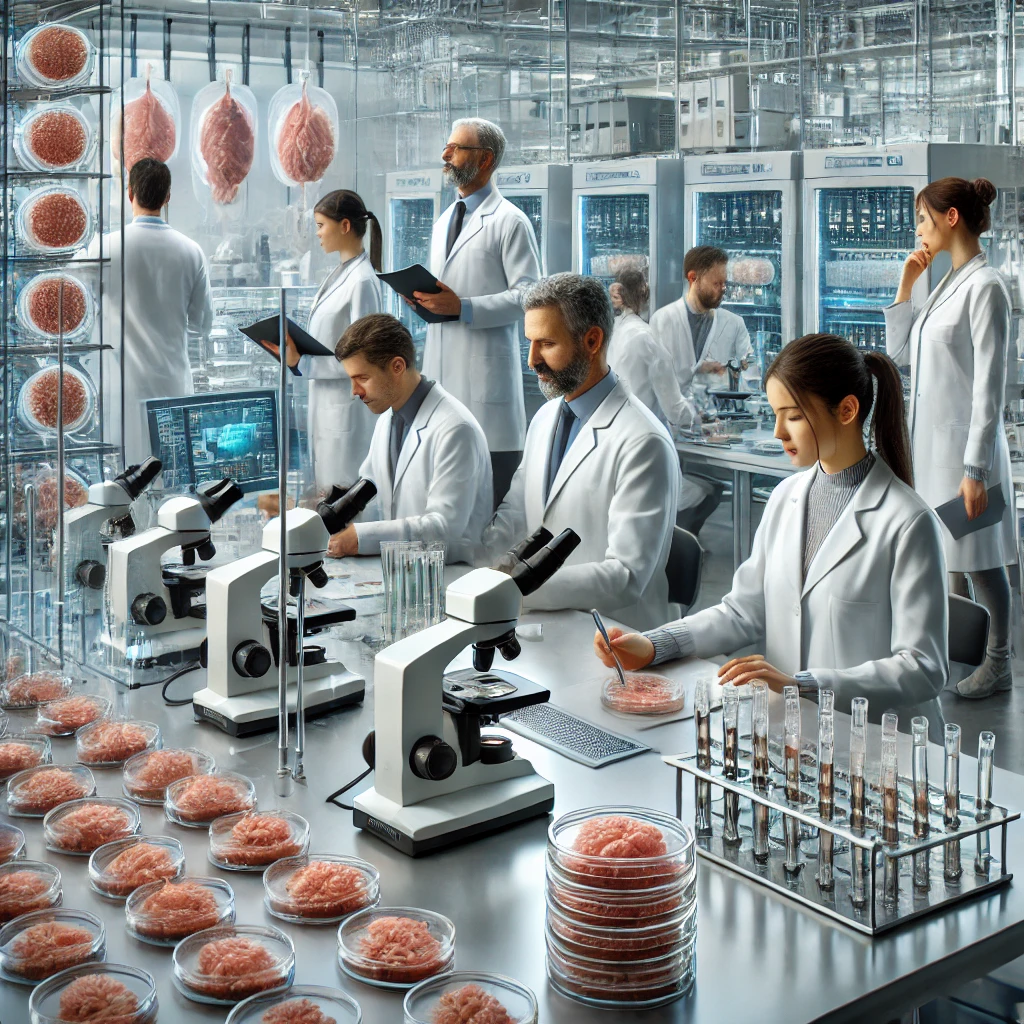Cultivated Meat Industry Challenges State Restrictions
Lab-grown meat, a revolutionary food technology, has become the center of a legal battle in Florida. Upside Foods, a prominent manufacturer in this emerging industry, has filed a lawsuit challenging the state’s recent ban on the sale of cultivated meat products. The legal action argues that the restrictions unfairly favor local farmers over out-of-state competitors, potentially violating constitutional protections for interstate commerce.
5 Key points
- Upside Foods has sued Florida over its ban on cultivated meat sales
- The lawsuit claims the ban gives an unconstitutional advantage to Florida farmers
- U.S. regulators approved the sale of cell-cultured meat in June 2023
- Proponents argue that lab-grown meat is more ethical and sustainable than conventional meat
- Florida and Alabama have banned the sale of cultivated meat products
Constitutional Concerns in the Legal Challenge
The lawsuit in the U.S. District Court for the Northern District of Florida contends that the ban infringes upon constitutional rights, particularly those related to interstate commerce. Paul Sherman, an attorney at the Institute for Justice, one of the groups behind the lawsuit, articulated the core argument: “If some Floridians don’t like the idea of eating cultivated chicken, there’s a simple solution: Don’t eat it.” This statement underscores the plaintiffs’ position that consumer choice should prevail over state-imposed restrictions.
The legal challenge raises important questions about the balance between state interests in protecting local industries and the constitutional principle of free trade between states. It also highlights the tension between traditional agriculture and emerging food technologies, a conflict likely to intensify as alternative protein sources gain market traction.
FDA Approval and State-Level Resistance
The U.S. Food and Drug Administration (FDA) first approved the sale of cell-cultured or cell-cultivated meat in June 2023, marking a significant milestone for the industry. This decision paved the way for companies to market these products as alternatives to conventionally raised meat, potentially disrupting the traditional livestock industry.
However, the federal approval has met with resistance at the state level. Florida and Alabama have taken steps to protect their agricultural industries by banning the sale of lab-grown meat. These actions reflect concerns about the economic impact on traditional farming, ranching, and skepticism about the safety and cultural acceptance of cultivated meat products.
Florida’s Agricultural Protectionism
Florida Governor Ron DeSantis signed the ban into law in May, expressing unequivocal support for traditional agriculture. During the signing ceremony, flanked by cattle farmers, DeSantis stated, “We stand with agriculture, we stand with the cattle ranchers, we stand with our farmers because we understand it’s important for the backbone of the state.” He added emphatically, “Take your fake lab-grown meat elsewhere.”
This stance highlights the political and economic considerations driving the ban. Florida’s agricultural sector, particularly its cattle industry, significantly contributes to its economy. The ban is a protective measure to shield these established interests from emerging competition.
Cultivated Meat Industry’s Counterarguments
Upside Foods, the manufacturer behind the lawsuit, vigorously contests the characterization of their product as “fake.” CEO and founder Uma Valeti emphasized the authenticity of their offerings: “This is delicious meat. And we fundamentally believe that people should have a choice to choose what they want to put on their plate.”
To demonstrate the quality and appeal of their products, Upside Foods held a tasting party in Miami before the ban went into effect. Guests were served cultivated chicken tostadas garnished with avocado, chipotle crema, and beet sprouts, showcasing the culinary potential of lab-grown meat.
Demystifying the Production Process
Contrary to popular belief and the term “lab-grown,” cultivated meat is not produced in a traditional laboratory setting. Valeti clarified that their production facilities more closely resemble breweries or dairy processing plants, highlighting the industrial scale of their operations.
This distinction is crucial for public understanding and acceptance. The production process involves growing animal cells in large bioreactors, feeding them a carefully formulated mixture of nutrients, and then forming the resulting tissue into various meat products. This method aims to replicate conventional meat’s taste, texture, and nutritional profile without animal slaughter.
FAQ
Q: What exactly is lab-grown meat?
A: Lab-grown meat, also known as cultivated or cell-cultured meat, is produced by growing animal cells in a controlled environment. It makes meat products without raising and slaughtering animals.
Q: Has lab-grown meat been approved for sale in the United States?
A: Yes, the FDA approved the sale of cell-cultured meat in June 2023, allowing companies to market these products nationally, subject to state regulations.
Q: What are Florida’s reasons for banning the sale of lab-grown meat?
A: Florida enacted the ban to protect its agricultural industry, particularly cattle ranchers and farmers, from what they perceive as threatening their livelihoods and to maintain traditional farming practices.
Q: What arguments do proponents of lab-grown meat make in its favor?
A: Proponents argue that lab-grown meat is more ethical, as it doesn’t involve animal slaughter and is more sustainable, potentially reducing the environmental impact of meat production. They also cite potential benefits in food security and public health.
Q: How does the production process for lab-grown meat work?
A: Lab-grown meat is produced by feeding animal cells a mixture of proteins, vitamins, and water in large bioreactors. The resulting tissue is then shaped into meat products like nuggets, sausages, and steaks. The process aims to mimic the growth of muscle tissue that occurs in animals.
Citations:
Payne, K. (2024, August 13). ‘Lab-grown’ meat maker files lawsuit against Florida ban. ABC News. https://abcnews.go.com/US/wireStory/lab-grown-meat-maker-files-lawsuit-florida-ban-112810846







